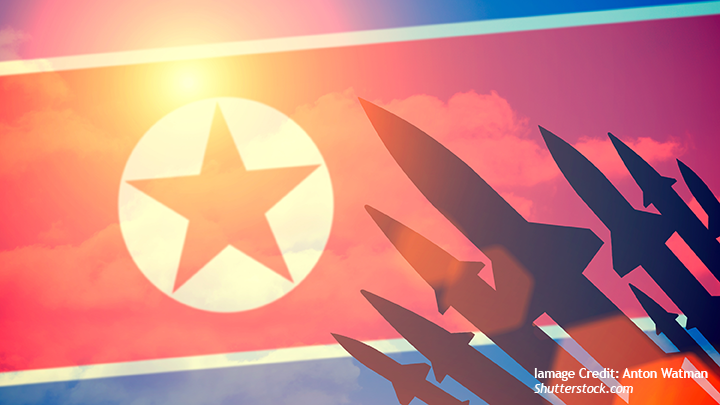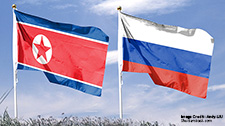With New Law on Nuclear Forces Policy, North Korea Says Its Nuclear Status Is ‘Irreversible’

Mitch Shin
Introduction:
A day before the 74th anniversary of the country’s founding, North Korea’s supreme leader Kim Jong Un publicly declared that his nuclear weapons are no longer a bargaining chip for talks.
“By promulgating a law on a policy of the nuclear forces, our country’s status as a nuclear-weapons state has become irreversible,” the North’s state-controlled Korea Central New Agency (KCNA) quoted Kim as saying during his speech at the 7th Session of the 14th Supreme People’s Assembly on Thursday.
Calling the United States the first country that used nuclear weapons and the most powerful nuclear state, Kim said his country’s nuclear arsenal is “a deterrent and ultimate weapon” that has been developed “to eliminate nuclear war and secure the country’s pride and safety.”
While saying that “removing our nuclear weapons is the purpose of the U.S.,” Kim also stated that the ultimate goal of U.S. attempts to denuclearize his country is “the collapse” of Kim’s regime.
Kim accused the U.S. of fomenting North Korean people’s complaints toward the party by imposing large scale economic sanctions against his country. He confidently stated that it is “misjudgment” and “miscalculation” by the country’s adversaries – which refer to the U.S. and South Korea – stating that the sanctions only strengthened the North Korean government’s commitment to develop nuclear weapons.
Related Publications
-
ISDP Annual Report 2023
ISDP’s Annual Report for the year 2023. We look back on 2023, a year in which tensions and conflicts captured the strategic space in ISDP’s focus areas, making headlines around […]
-
What Comes Next for North Korea-Russia Relations?
North Korea and Russia have taken their relations to a new level after the leaders of the two countries held an in-person summit meeting on Wednesday. While Pyongyang and Moscow […]
-
South Korea’s Indo-Pacific Strategy, Atmanirbhar Bharat, and the IPEF: Convergence and Commonality
For some time now, the existing multilateral networks such as those of the United Nations (UN) system have been largely ineffective in providing good global governance and helping create resilience, […]
-
Risk Reduction and Crisis Management on the Korean Peninsula
The situation on the Korean Peninsula is inherently intertwined with the growing instability of the East Asian security environment, where high tensions significantly increase the risk of unintended incidents and armed […]
-
Washington Declaration: Beyond Korea, What it Means for India?
In April 2023, South Korea and the United States released the Washington Declaration to reiterate and upgrade their treaty alliance. In outlining a joint nuclear deterrence strategy, the Declaration reaffirmed […]




